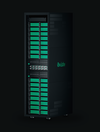Two takes on the future of software development
Today: Two legendary software engineers sum up the current state of AI coding in mid-2025 and what comes next, Microsoft and OpenAI continue to trial balloon their contract negotiations, and the latest enterprise moves.














